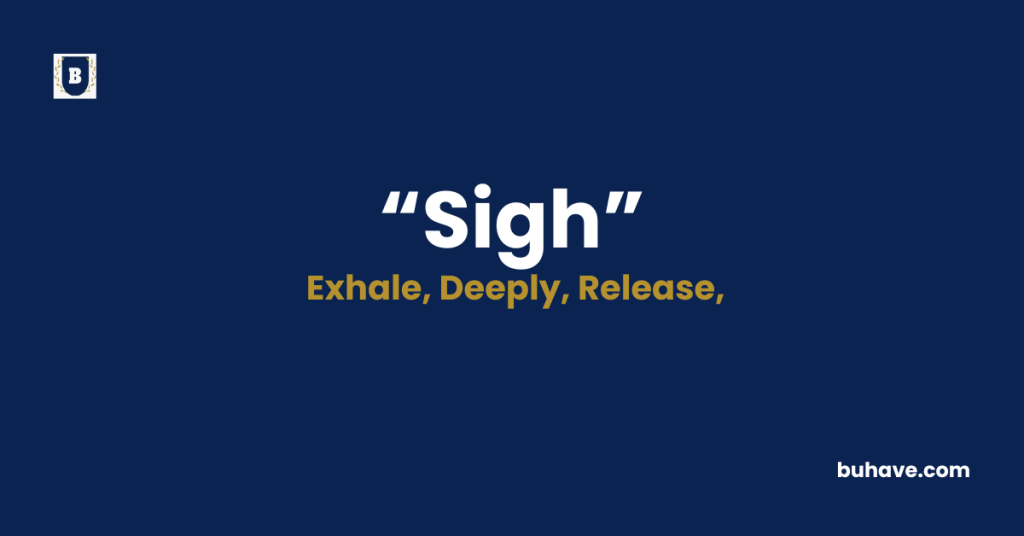The word Sigh (Noun) refers to letting out a long, audible breath, often as a sign of sadness, relief, or tiredness. In this guide, you’ll learn the full definition, synonyms, antonyms, etymology, and real-life examples of how to use Sigh correctly in sentences.
Sigh Explained in Depth
A complete and detailed guide to the word Sigh including meaning, definition, examples, etymology, synonyms, and antonyms.
Meanings of Sigh
Sigh means to exhale audibly, often as a natural emotional reaction to disappointment, relief, frustration, or deep thought. It can be involuntary or intentional, depending on the context.
Definition
Sigh refers to a soft, deep breath that is released audibly, usually as an emotional response. People sigh when they are stressed, sad, bored, or sometimes when relieved. The act involves inhaling and then letting the air out slowly, creating a subtle sound. A sigh can be a response to disappointment. It may follow a moment of exhaustion. Some people sigh to calm themselves. Others do it unconsciously when overwhelmed. Sighing serves as a physical expression of what the person is feeling internally. It doesn’t require words. In literature, sighing often symbolizes emotional weight or longing. While subtle, it is a powerful form of non-verbal communication.
Etymology
The word “sigh” dates back to Middle English, appearing around the 13th century as sihen. It evolved from Old English sīcan, meaning “to sigh” or “to lament.” Related words can be found in Old High German and Old Norse, suggesting a shared Germanic root. Over time, the spelling and pronunciation changed, but the core meaning remained stable. In early literature, sighs were often linked with grief, romance, and the weight of sorrow. Shakespearean plays frequently used sighs to convey emotional turmoil or unspoken pain. The word’s simplicity made it widely adaptable, whether describing real emotions or poetic moods. Today, “sigh” remains a common and relatable expression that cuts across language and culture. It expresses human vulnerability and emotion in a single breath.
Example Sentences
- She let out a sigh after reading the final exam question.
- He sighed deeply, unsure of how to respond.
- The room fell silent except for the quiet sighs of disappointment.
Sigh Synonyms
- Exhale
- Groan
- Murmur
- Respire
- Breathe out
- Moan
- Whisper
- Release
- Blow
- Puff
Sigh Antonyms
- Gasp
- Cheer
- Laugh
- Shout
- Chuckle
- Cry out
- Whoop
- Yell
- Exclaim
- Sob
FAQs about Sigh
Here are some frequently asked questions (FAQs) about the word “Sigh”
1. What does a sigh usually express?
It often expresses sadness, fatigue, frustration, or relief.
2. Is sighing healthy?
Yes. Occasional sighing helps release tension and reset breathing.
3. Why do people sigh unconsciously?
It can happen due to emotional overload or when the body needs to regulate breathing.
4. Can sighing be a social cue?
Yes. People may sigh to signal boredom, disappointment, or need for attention.
5. Is sighing common in literature?
Very. Writers use it to depict characters’ emotional states without dialogue.






